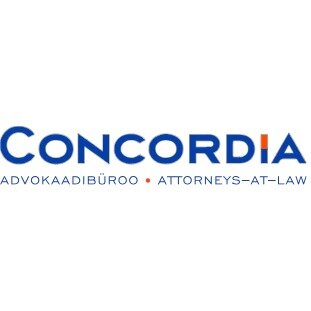Best Renewable & Alternative Energy Lawyers in Estonia
Share your needs with us, get contacted by law firms.
Free. Takes 2 min.
Or refine your search by selecting a city:
List of the best lawyers in Estonia
About Renewable & Alternative Energy Law in Estonia
Estonia is a progressive country in the field of renewable and alternative energy. The nation aims to reduce its reliance on fossil fuels and increase its use of renewable energy sources, such as wind, solar, and biomass. Estonia has implemented various laws and regulations to promote the development, production, and consumption of renewable energy. This policy shift is part of Estonia's commitment to the European Union’s energy and climate goals, with targets for renewable energy usage and greenhouse gas emissions reductions. Renewable energy law in Estonia covers licensing, incentives, environmental regulations, grid access, electricity tariffs, and other matters that affect both individuals and businesses working in the renewable energy sector.
Why You May Need a Lawyer
A lawyer specializing in renewable and alternative energy can help with a variety of challenges and opportunities in Estonia. Common situations where legal help may be essential include:
- Navigating the applications and permits required to build renewable energy projects such as wind farms or solar installations. - Drafting and reviewing contracts for the sale, purchase, or distribution of renewable energy. - Ensuring regulatory compliance with national and EU energy regulations. - Advising on incentives, grants, subsidies, and tax benefits available for renewable energy investments. - Resolving disputes with other businesses, government bodies, or landowners. - Assisting foreign investors with local requirements and procedures. - Intellectual property protection for technological innovations in the energy sector. - Environmental law compliance, including managing environmental impact assessments and permits. - Guiding grid connection procedures and negotiating power purchase agreements.
Local Laws Overview
Several key legal frameworks govern renewable and alternative energy in Estonia. These are primarily based on national law, supplemented by European Union directives that Estonia is required to implement.
- The Electricity Market Act governs the generation, transmission, and sale of electricity, including from renewable sources. - The Sustainable Development Act supports the use of renewable energy and the reduction of greenhouse gas emissions. - The Energy Sector Organisation Act addresses overall energy market organization and operation. - The Environmental Impact Assessment and Environmental Management System Act ensures that energy projects comply with necessary environmental standards and assessment procedures. - Estonia has support schemes such as feed-in premiums that incentivize renewable energy production. - Grid access and connection are regulated to ensure fair access for producers of renewable energy. - Permitting processes may vary depending on project size, type, and location, and often involve local municipalities and environmental agencies. - Foreign investment in the renewables sector is encouraged, though it is subject to general business regulations and sometimes additional scrutiny in strategic sectors. - Estonia aligns its policies with EU Green Deal goals, which means ongoing legislative changes can be expected.
Frequently Asked Questions
What are the main sources of renewable energy in Estonia?
Wind, solar, and biomass are the primary sources of renewable energy in Estonia, along with hydro and some use of biofuels.
Are there incentives for installing solar panels or wind turbines in Estonia?
Yes, various incentives such as feed-in premiums, subsidies, and grants exist for both individuals and companies installing renewable energy systems. The exact programs can depend on the type and size of the installation.
Is a permit required to build a renewable energy installation?
Yes, most renewable energy installations require permits from local authorities and possibly environmental agencies, especially for larger projects.
Can foreigners invest in renewable energy projects in Estonia?
Yes, Estonia welcomes foreign investment in the renewable energy sector, though investment in some strategic areas may be subject to additional review.
How does the grid connection process work?
Producers must apply to the grid operator for connection. The process involves technical evaluation, contract negotiations, and can take several months.
Are there environmental assessments required for energy projects?
Yes, depending on the scale and location, an environmental impact assessment may be mandatory before construction can begin.
What legal support is needed for community renewable energy projects?
Community projects require careful legal planning, including cooperative formation, permitting, securing financing, and negotiating agreements among participants.
What regulations apply to the sale of renewable electricity?
The sale of renewable electricity is governed by the Electricity Market Act, which sets out conditions for licensing, tariffs, and grid access.
How are disputes in the renewable energy sector resolved?
Disputes can often be resolved through negotiation or mediation, but litigation or arbitration may be needed for more significant conflicts.
Will renewable energy laws change in the near future?
Estonia frequently updates its laws to keep pace with EU regulations and technological advances, so ongoing legislative changes should be expected.
Additional Resources
- Estonian Ministry of Economic Affairs and Communications: The central government body overseeing energy policy and regulation. - Estonian Renewable Energy Association (EREA): A key industry group providing advocacy and information. - Estonian Competition Authority (ECA): The regulatory agency for electricity markets and grid operators. - Estonian Environment Agency: Responsible for environmental permits and assessments. - Enterprise Estonia: Offers support and information for businesses and investors in renewable energy. - Local municipality offices and planning authorities for specific project permitting requirements.
Next Steps
If you need legal advice or support in renewable and alternative energy matters in Estonia, consider the following steps:
- Define your objectives, whether you are planning an installation, investing, or facing regulatory challenges. - Gather relevant documentation related to your energy project or investment. - Research and shortlist lawyers or law firms with proven experience in Estonian energy law. - Schedule consultations to discuss your needs and review legal strategies with qualified professionals. - Stay informed about ongoing regulatory changes in the renewable energy sector. - Utilize support services and resources from Estonian government bodies and industry associations. - Take action promptly, as permitting processes and investments can require careful timing and adherence to regulations.
Legal professionals can guide you through every stage of your renewable energy project, from initial planning and permitting to ongoing compliance and dispute resolution. Seeking specialist legal advice can help ensure the success and legal security of your renewable energy ventures in Estonia.
Lawzana helps you find the best lawyers and law firms in Estonia through a curated and pre-screened list of qualified legal professionals. Our platform offers rankings and detailed profiles of attorneys and law firms, allowing you to compare based on practice areas, including Renewable & Alternative Energy, experience, and client feedback.
Each profile includes a description of the firm's areas of practice, client reviews, team members and partners, year of establishment, spoken languages, office locations, contact information, social media presence, and any published articles or resources. Most firms on our platform speak English and are experienced in both local and international legal matters.
Get a quote from top-rated law firms in Estonia — quickly, securely, and without unnecessary hassle.
Disclaimer:
The information provided on this page is for general informational purposes only and does not constitute legal advice. While we strive to ensure the accuracy and relevance of the content, legal information may change over time, and interpretations of the law can vary. You should always consult with a qualified legal professional for advice specific to your situation.
We disclaim all liability for actions taken or not taken based on the content of this page. If you believe any information is incorrect or outdated, please contact us, and we will review and update it where appropriate.
Browse renewable & alternative energy law firms by city in Estonia
Refine your search by selecting a city.
















